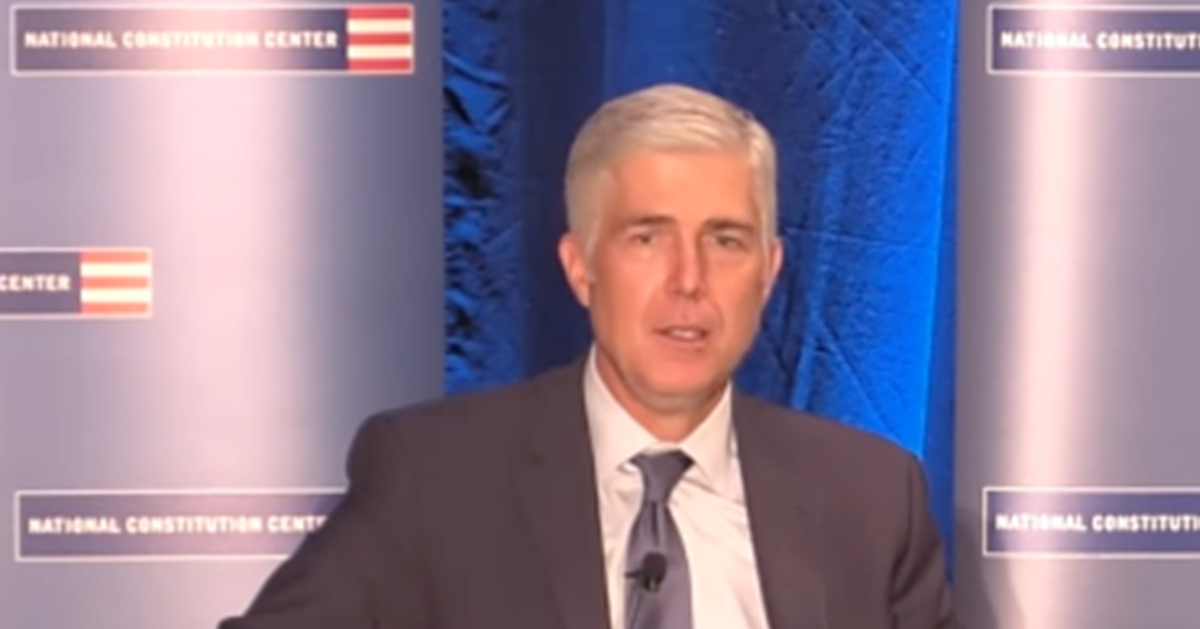Discriminatory Federal Agency Program May Violate Constitution, Judge Says
A federal judge ruled on Monday that the Department of Transportation's (DOT) Disadvantaged Business Enterprise (DBE) program is likely unconstitutional, dealing a significant blow to the decades-old initiative.
The court issued a preliminary injunction against the program, halting the government’s ability to apply its policies to certain contractors in Kentucky and Indiana and finding that the DBE program’s race and gender-based presumptions likely violate the Constitution’s equal protection clause, as National Review reports.
The ruling is part of an ongoing lawsuit led by two companies, Mid-America Milling and Bagshaw Trucking, who claim the DBE program causes them to miss out on valuable contracts. Both businesses are represented by the Wisconsin Institute for Law & Liberty (WILL), which argues that the program discriminates against businesses owned by non-minority men.
Judge Criticizes Race, Gender Presumptions
Judge Gregory F. Van Tatenhove, who presided over the case, stated that the DBE program’s presumption that businesses owned by women and certain racial minorities are disadvantaged is overly broad and not sufficiently tailored to address specific instances of past discrimination. The judge emphasized that while the government may have good intentions in trying to remedy historical wrongs, any measures taken must still align with constitutional standards.
In his opinion, Tatenhove expressed skepticism about the program’s ability to meet this requirement, stating that the government’s justification was based on “societal discrimination” rather than targeted evidence of disadvantage for the businesses involved. He pointed out inconsistencies in the program, noting that a business owned by a man from Pakistan would receive the program's benefits, while a business owned by a man from Afghanistan would not.
Tatenhove also raised concerns about the longevity of the program, which was first enacted in 1983 and reauthorized in 2021. He questioned whether there was a clear "logical end point" to the race-conscious elements of the DBE, further criticizing its continued existence without a termination plan.
Program’s Impact on Local Contractors
The plaintiffs argue that the DBE program has caused them financial harm by making it difficult for them to win government contracts. Mid-America Milling, in particular, claimed it lost at least 82 contracts in Indiana since January 2022, a significant loss for the small business.
Government attorneys countered that the plaintiffs lacked standing and that the DBE program is not exclusively based on race or gender, but rather on a range of factors. However, Judge Tatenhove dismissed these arguments, finding that the program's race and gender-based criteria were the central issue in the case.
Government Plans to Appeal Ruling
The DOT has announced that it will comply with the court's preliminary ruling while continuing to defend the DBE program in the legal battle ahead. A spokesperson for the agency, Sean Manning, stated that the DOT believes the program serves a critical purpose in providing opportunities to disadvantaged businesses and will continue to advocate for its legality as the case progresses.
The ruling has garnered praise from WILL, which called the decision a significant victory against federal policies they argue are discriminatory. Rick Essenberg, the president of WILL, stated that their goal is to dismantle federal policies that they believe unfairly discriminate against certain small businesses. He vowed to continue the fight for what he described as "equal treatment" under the law.
Precedents and Broader Implications
This ruling follows a similar legal victory achieved by WILL earlier this year in a case against the Minority Business Development Agency (MBDA) in Texas. In both cases, the plaintiffs successfully argued that race-based considerations in federal programs were unconstitutional, setting the stage for further challenges to such policies nationwide.
The DBE case also comes in the wake of a landmark Supreme Court decision earlier in 2024, where the court ruled against race-based admissions policies in universities. The Students for Fair Admissions cases signaled a shift in the judiciary's approach to race-conscious policies, further emphasizing the need for such programs to be narrowly tailored and temporary.
Judge Calls for Program's End
Judge Tatenhove’s ruling echoed themes from the Supreme Court’s recent decision, stressing the importance of a clear end point for race-conscious programs like the DBE. The judge remarked on the DBE program’s more than 40-year existence, questioning whether it is still necessary in its current form and whether it has achieved its goals.
“The court is keenly aware of the past discrimination that certain groups of people have faced in this country,” Tatenhove stated, acknowledging the challenges faced by minority-owned businesses. “But remedying those wrongs must still pass constitutional muster.”
Ongoing Legal Battle Expected
The case will likely continue to play out in higher courts, as both sides prepare for what could become a pivotal legal battle over the future of federal policies aimed at addressing racial and gender disparities. The DOT’s decision to comply with the preliminary ruling, while still defending the DBE program, indicates that the agency is prepared for a protracted legal fight.
Meanwhile, businesses like Mid-America Milling and Bagshaw Trucking hope the ruling will level the playing field, allowing them to compete for contracts without what they see as unfair disadvantages.
Conclusion: Judge's Ruling Adds to Legal Trend
The preliminary injunction against the DOT's DBE program marks another step in the legal pushback against race-based federal programs.
While the DOT plans to defend the program, the ruling highlights ongoing debates over the constitutionality of such initiatives, especially in light of recent Supreme Court decisions.
The case will likely have lasting implications for how the government addresses past discrimination and how programs like the DBE are structured in the future.



